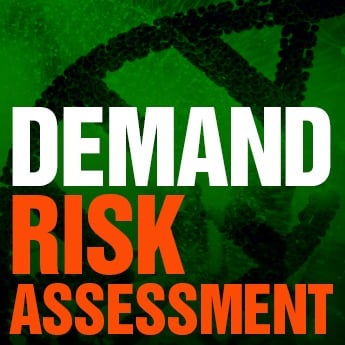December 20, 2019. Halifax. The Government of the Philippines has approved the genetically engineered (genetically modified or GM) “Golden Rice” for human consumption, though the rice’s ability to provide Vitamin A remains unevaluated and it is not yet approved for cultivation. If the other necessary approvals follow, this could be the first-ever GM rice grown in the world.
Golden Rice is the name of a rice that has been genetically engineered to produce beta carotene, which the body can convert into vitamin A. This beta-carotene gives the rice grains a yellowish colour that inspired its name.
Golden Rice is being developed by the International Rice Research Institute which says it will be an important intervention to address vitamin A deficiency, or VAD. VAD is a symptom of malnutrition and hunger due to poverty.
Canada, the US and Australia and New Zealand have also approved the GM rice as safe to eat, but the Philippines is the first country to do so where the GM rice will actually be distributed for consumption.
No regulatory authority has yet to assess the ability of Golden Rice to provide adequate beta-carotene or address Vitamin A deficiency.
“Up to now, proponents have failed to address concerns on the Golden Rice’s negligible beta-carotene content, its fast degradation and the possible toxicity associated with the beta-carotene degradation,” said Cris Panerio, National Coordinator of MASIPAG, a farmers network in the Philippines which is part of a pan-Asian network of more than 30 groups called the Stop Golden Rice! Network, in a December 20 statement. (1)
The Canadian Biotechnology Action Network (CBAN) released a report in November that found Golden Rice has low and variable levels of beta-carotene, the beta-carotene degrades significantly during storage and cooking, and has not been adequately tested for bioavailability. (2)
“This is a safety approval for a product that is not yet demonstrated to work as promised,” said Taarini Chopra of the Canadian Biotechnology Action Network, “This approval sounds like a step forward for Golden Rice but it doesn’t make the product any more effective.”
Other measures to address vitamin-A deficiency are already available, such as delivering vitamin A supplements. Furthermore, there are many existing local crop plants that are high in beta-carotene.
– 30 –
For more information: Taarini Chopra, Canadian Biotechnology Action Network, 226 606 8240; Lucy Sharratt, Canadian Biotechnology Action Network, 902 209 4906.
(1) MASIPAG, Farmers and Civil Society Organisations across Asia denounce Philippines’ decision to approve direct use of Golden Rice, December 20, 2019 http://masipag.org/2019/12/farmers-and-civil-society-organisations-across-asia-denounce-philippines-decision-to-approve-direct-use-of-golden-rice/?fbclid=IwAR0N2_njahRHQ4-PreIPV7txqips-9MxxmsYn9MePMnWOLbvddIl2WSV7Ck
(2) The CBAN factsheet on Golden Rice Vitamin A Rice is available at www.cban.ca/GoldenRiceReport2019 and the summary is posted at www.cban.ca/GoldenRiceSummary2019
The Canadian Biotechnology Action Network (CBAN) brings together 16 groups to research, monitor and raise awareness about issues relating to genetic engineering in food and farming. CBAN members include farmer associations, environmental and social justice organizations, and regional coalitions of grassroots groups. CBAN is a project on the shared platform of Tides Canada.





